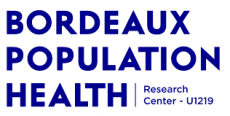Individual and familial factors associated with mRNA COVID-19 vaccine uptake in pregnancy: A large-scale registry-based linkage study
Résumé
The association between maternal COVID-19 vaccination in pregnancy and factors such as high risk for severe COVID-19, pre-existing asthma, prior adverse reproductive history, or paternal COVID-19 vaccination during pregnancy, remains unclear. The aim of this study is two-fold: (i) to describe uptake of COVID-19 vaccine during pregnancy by maternal risk for severe COVID-19 and asthma, and (ii) to comprehensively examine individual and familial factors associated with vaccine uptake during pregnancy in Norway. Based on nation-wide registry-linkage data in Norway, we included 101,659 deliveries with gestational length ≥12 weeks, in 2021-2022. Our outcome measure was uptake of at least one dose of mRNA COVID-19 vaccine during pregnancy, using a narrow (first ever dose) and broad (any dose) definition. We fit univariate and multivariate modified Poisson regression models, clustered by county of residency and adjusted for calendar time, to estimate risk ratios (RR) with 95 % Confidence Intervals (CIs). Gestational uptake of any COVID-19 vaccine dose increased from <1 % before mid Aug-2021, to 38.8 % in the rest of 2021, and 48.9 % in 2022. Only 28.8 % and 33.9 % pregnant individuals with high risk for severe COVID-19 or asthma, respectively, received at least one COVID-19 vaccine dose. Paternal COVID-19 vaccination was strongly associated with greater vaccine uptake by pregnant individuals (adjusted RR: 7.2, 95 % CI: 6.8-7.5). Maternal SARS-CoV-2 infection pre-pregnancy (adjusted RR: 0.31, 95 % CI: 0.26, 0.37), familial and individual migrant status were associated with a considerable decreased likelihood of vaccine uptake in pregnancy. History of miscarriage or pregnancy with congenital anomaly were not associated with vaccine uptake. Despite rising COVID-19 vaccine rates in pregnancy, uptake remained low for high-risk individuals. Paternal vaccination, pre-pregnancy infection, migration status, and maternal citizenship were strongly associated with prenatal vaccine uptake. This knowledge can inform tailoring of future vaccination campaigns.
| Origine | Fichiers produits par l'(les) auteur(s) |
|---|



